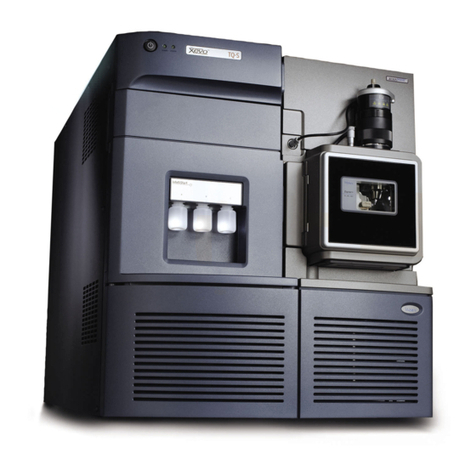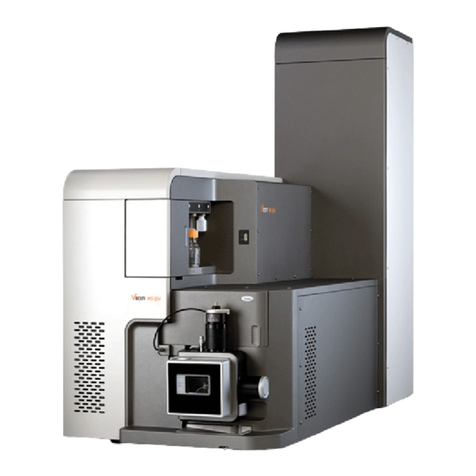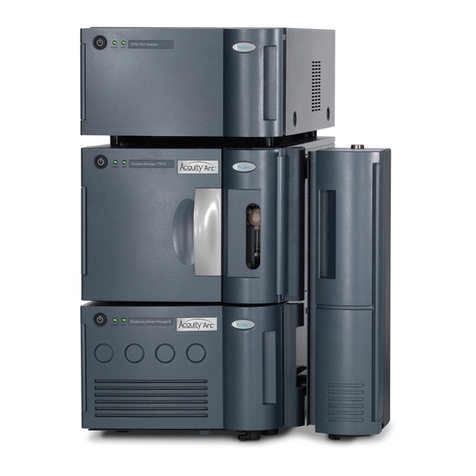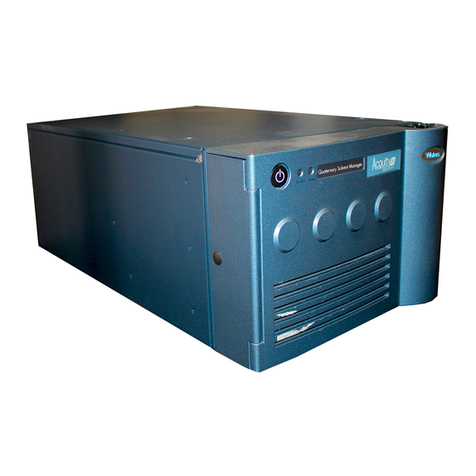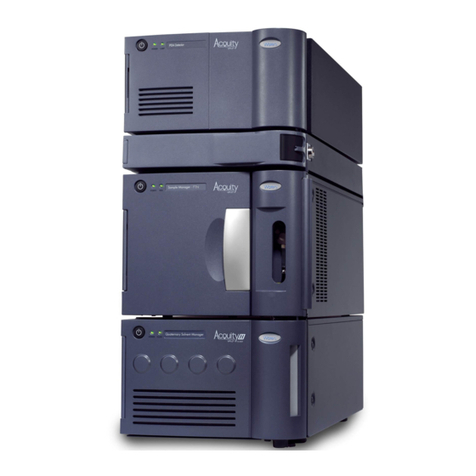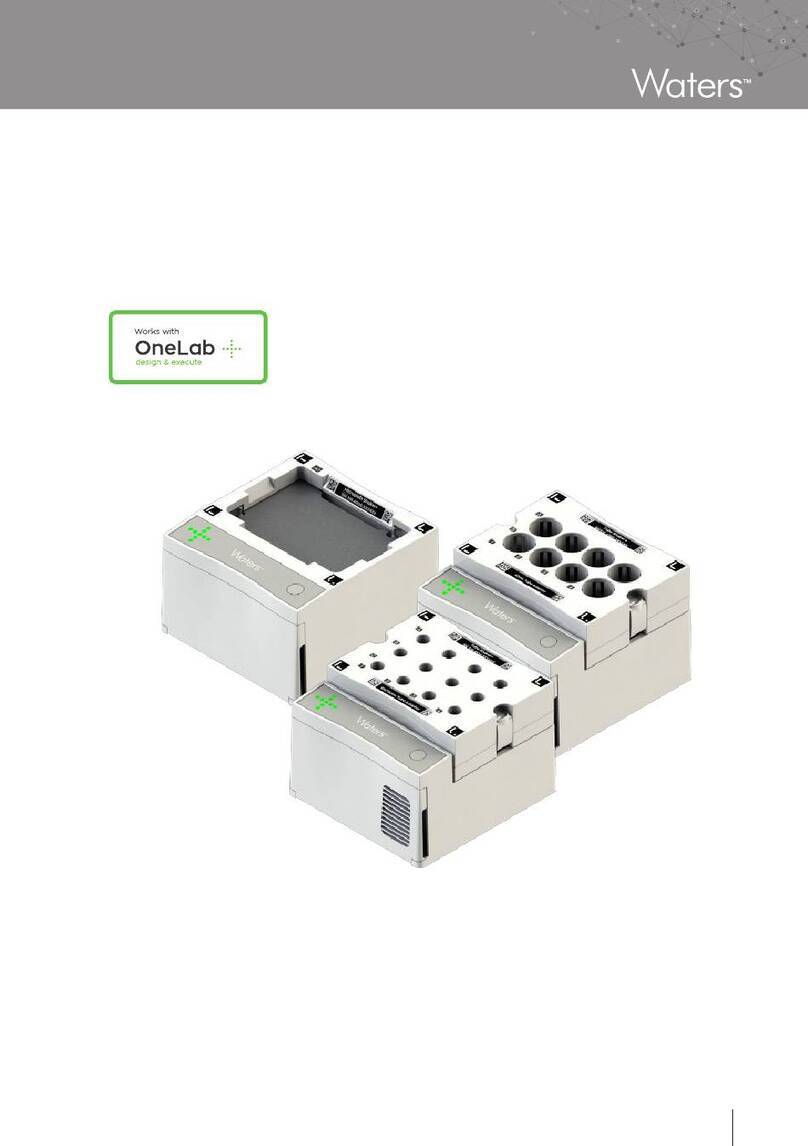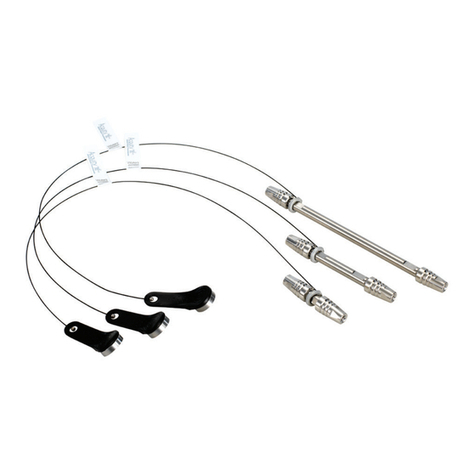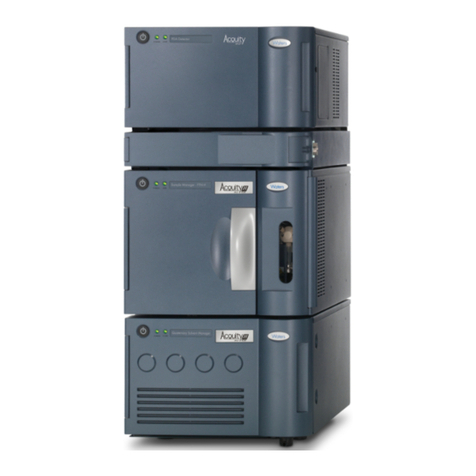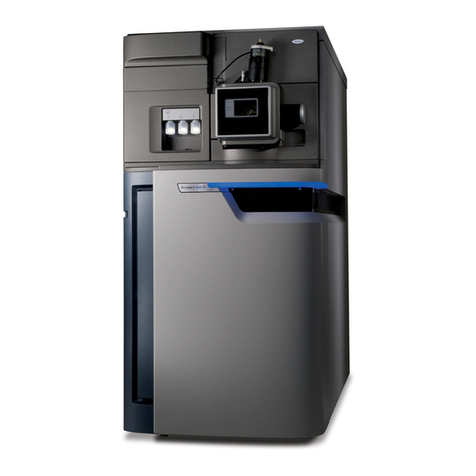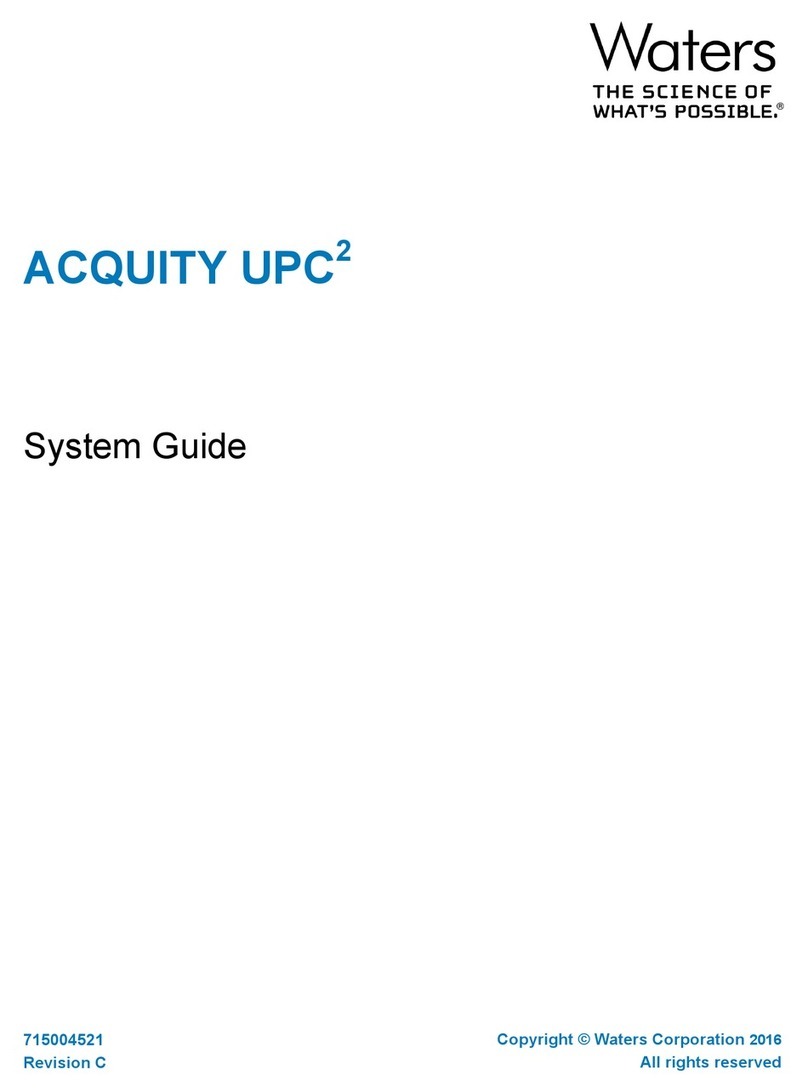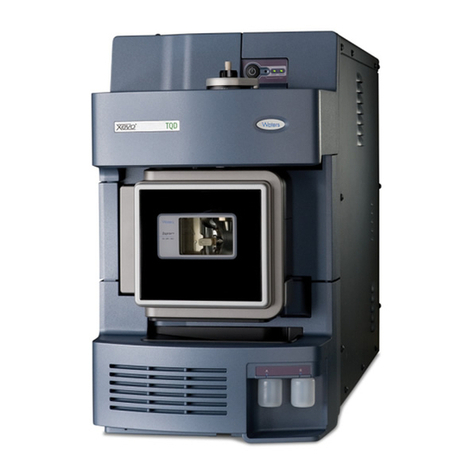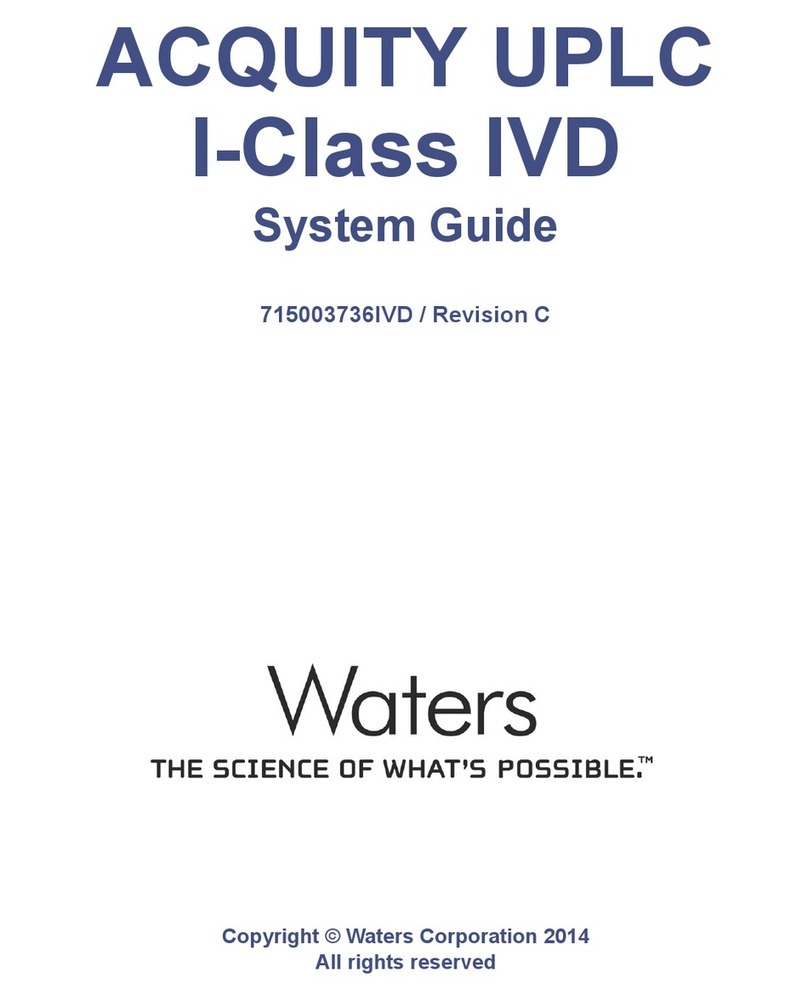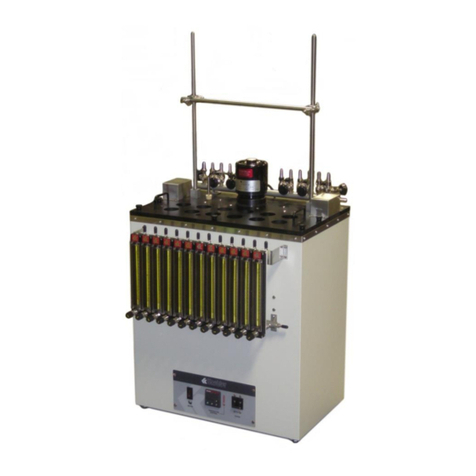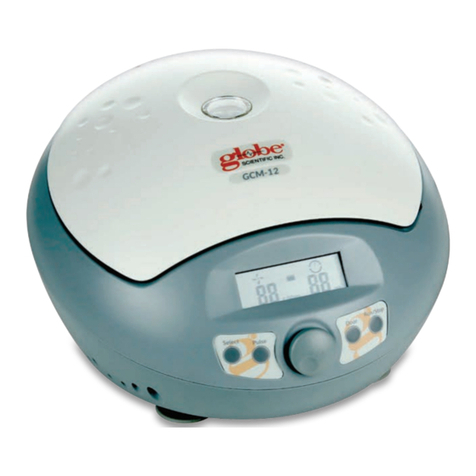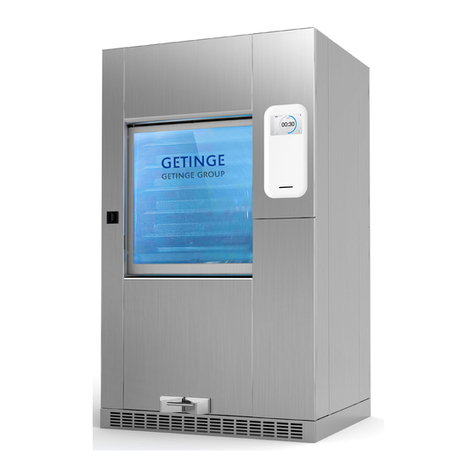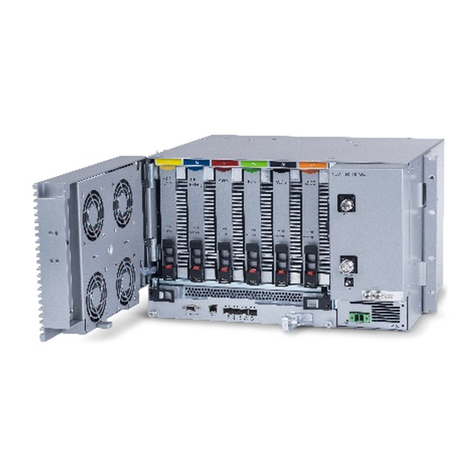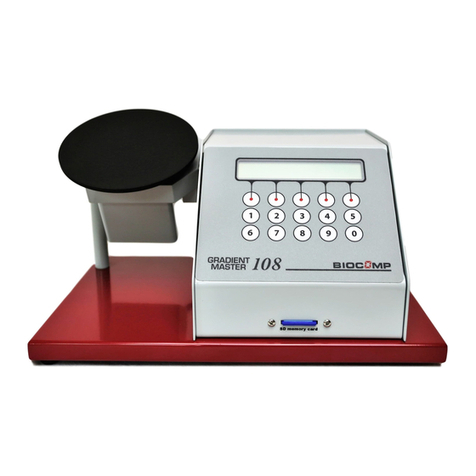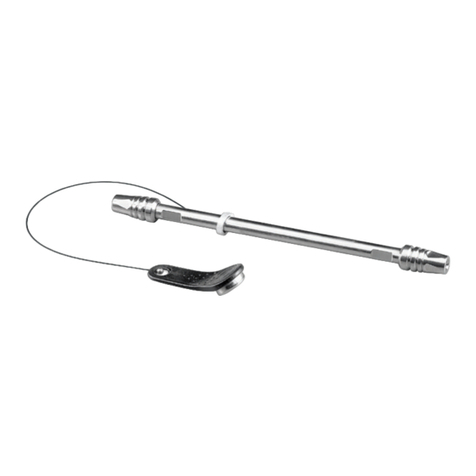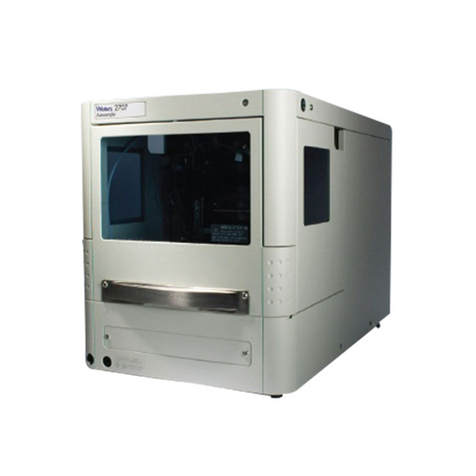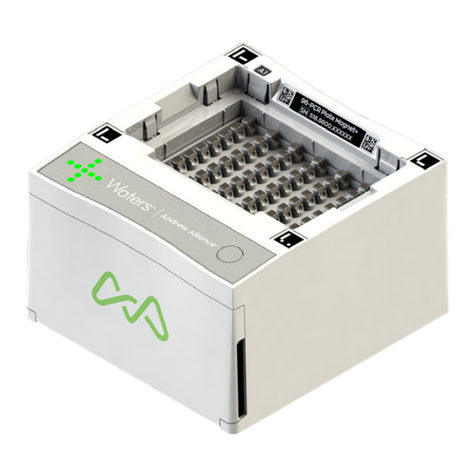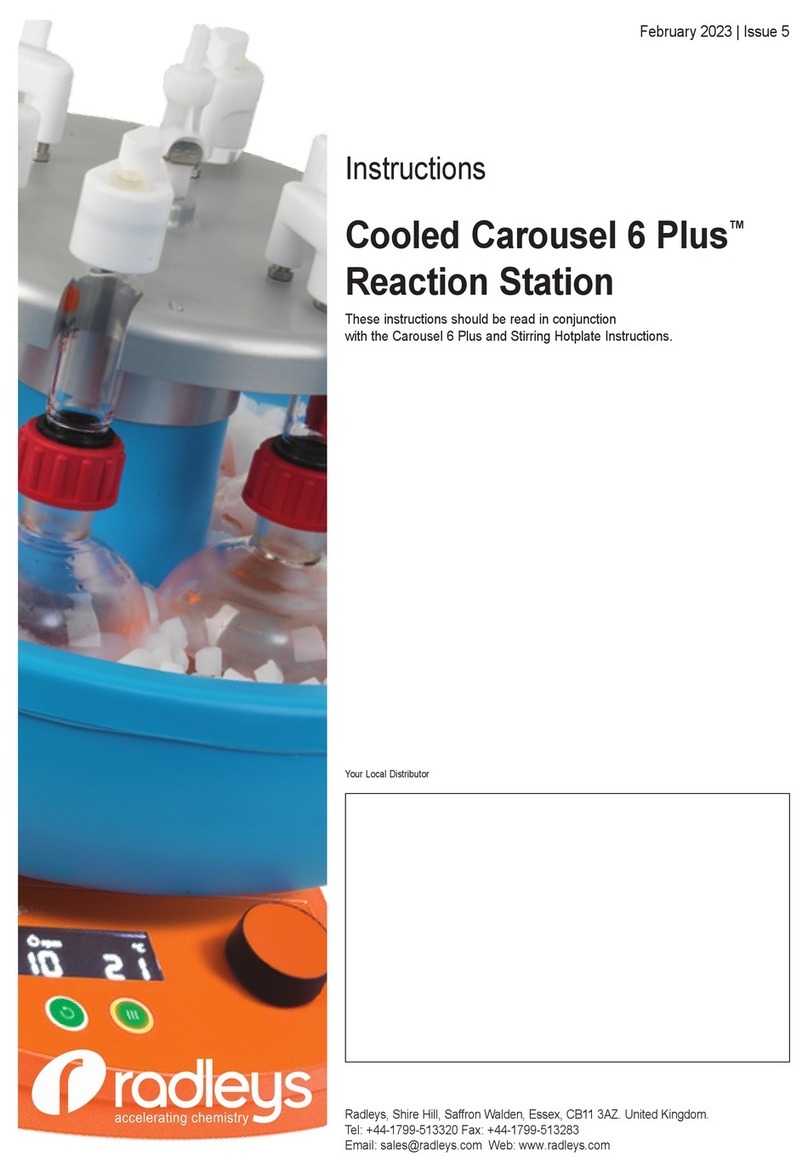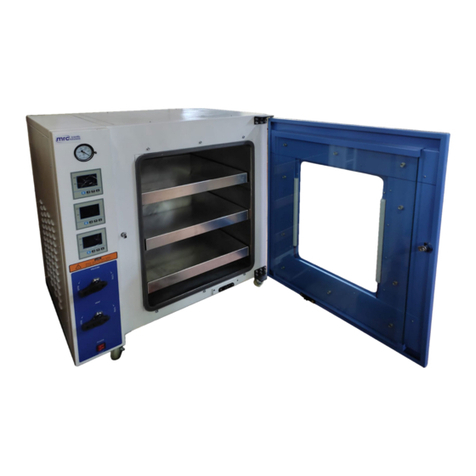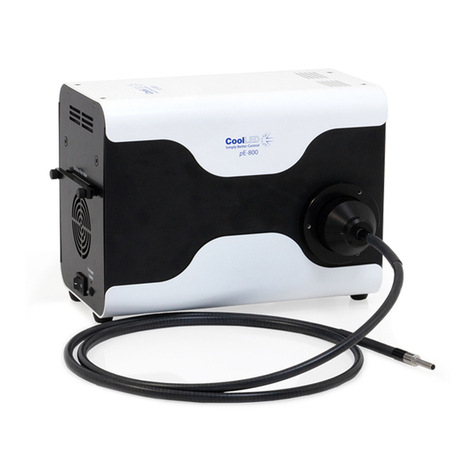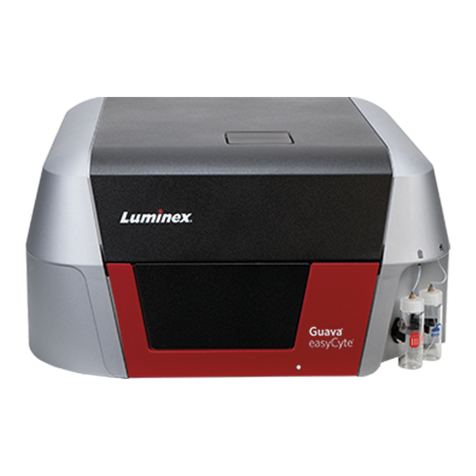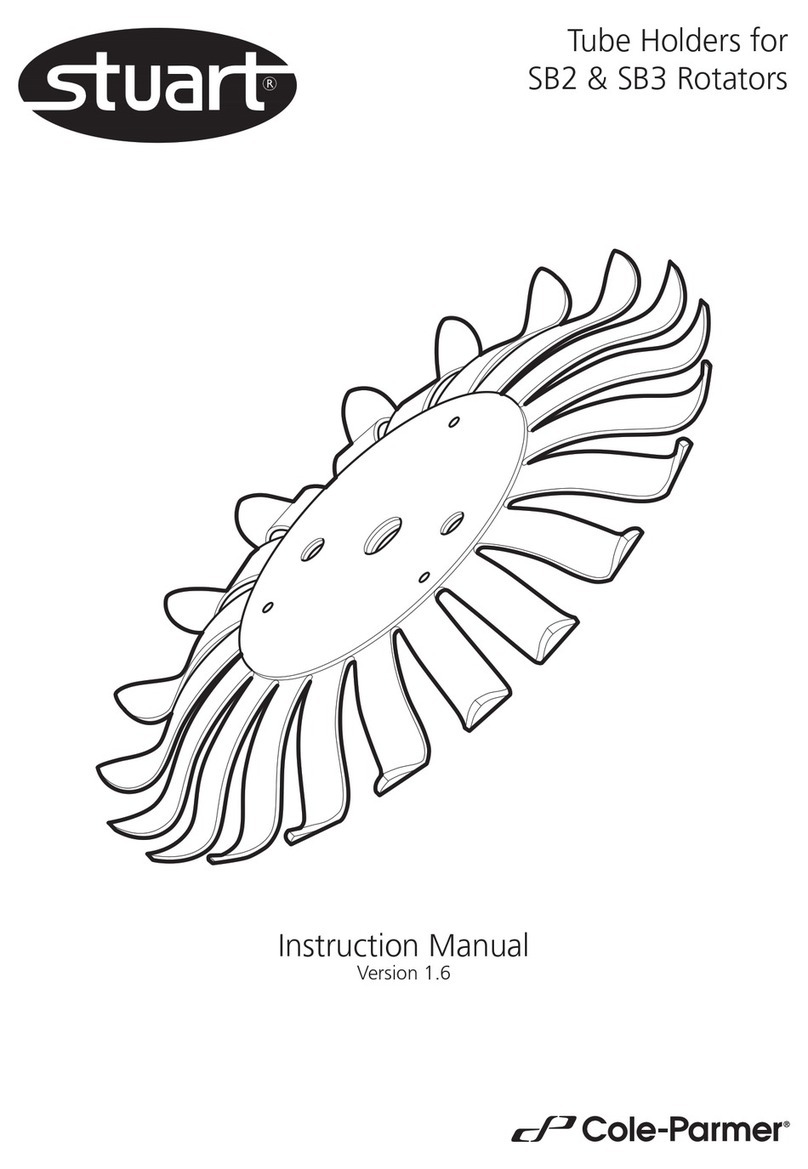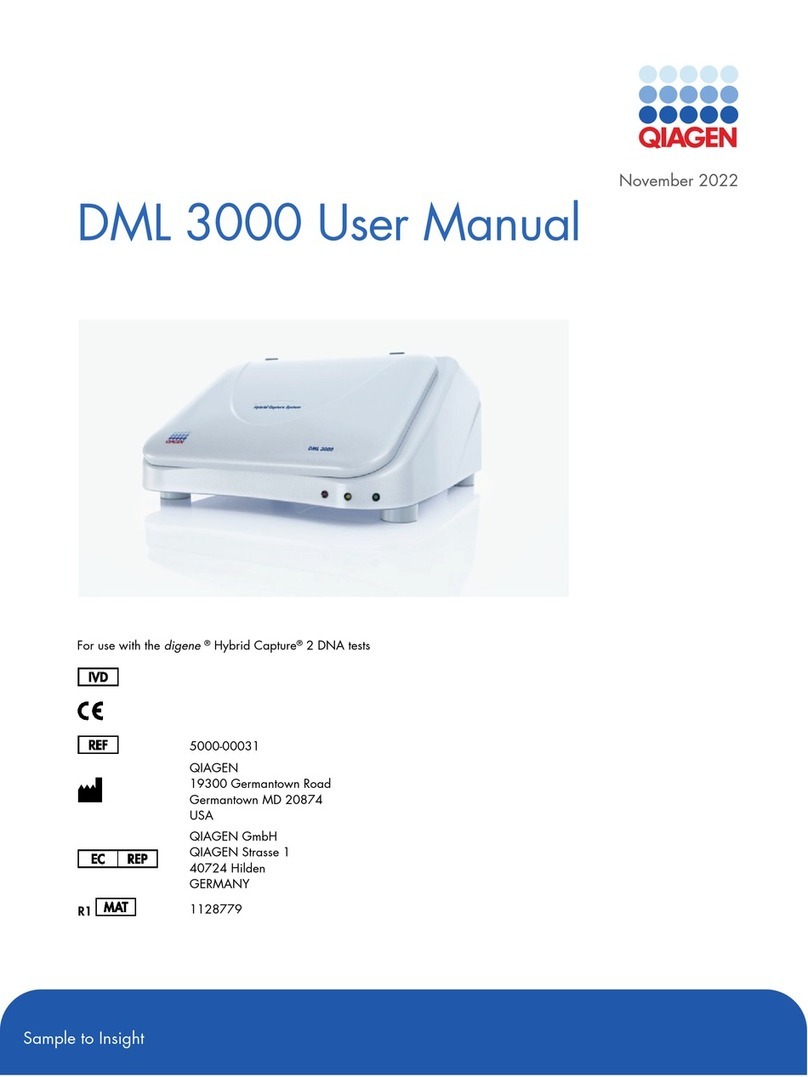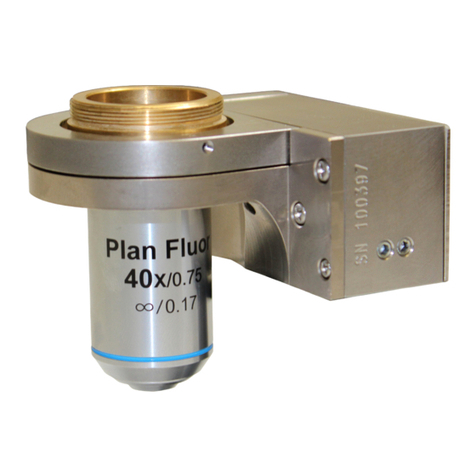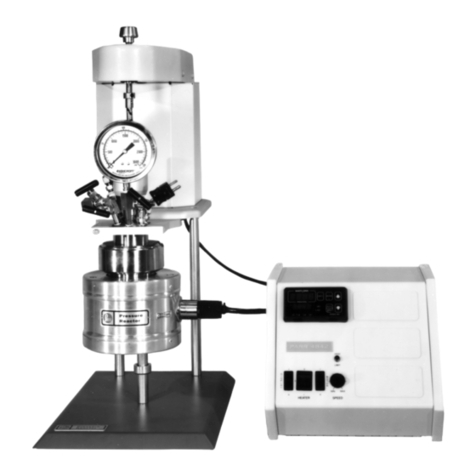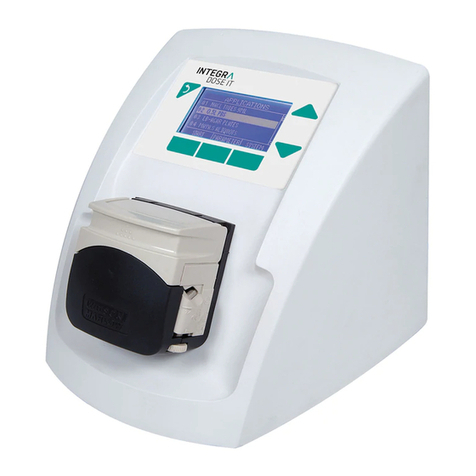
d. Controlling positive pressure with flow restrictors
Inhibiting the flow with the constrictors is helpful in two ways:
The amount of gas used is minimized as compared to a
system with no inhibitors.
The pressure remains high in the wells or cartridges
containing liquid as compared to the empty or dry wells
or cartridges.
e. Adjusting the extraction flow
The Waters Positive Pressure-96 Processor has a two-level gas
delivery system used to pressurize the SPE plate. One part of the
system is controlled by the rotometer located on the left side of
the instrument panel. By switching the “SPE Flow Rate” selector
to the left, “Adjust Flow” setting, the gas is delivered to the
Manifold through the adjustable flow regulator and then through
the rotometer controlled by the needle valve located at its base.
The rotometer provides a very precise and slow flow through
the plate wells or the cartridges by limiting the gas flow to the
manifold from 0 to 2.5 SCFH.
A. Manifold Head
B. Toggle Switches
Raise and lower manifold head
(1 on each side)
C. Rotometer
Sets the gas flow for the
low flow setting
D. Low Flow Regulator
E. Max Flow Regulator
F. Selector Valve
Used to select LOW or MAX
gas flow through the device.
Key Features.
Tip: The rotometer needle valve is for adjustment only and must
never be used as an on off valve. Use the selector valve to turn off
the gas flow.
The second part of the gas delivery system provides for rapid
gas flow to the manifold. This flow is controlled by adjusting the
regulator located below the pressure gauge labeled “Max Flow”.
The pressure range is 0 to 80 psig and is used to maximize
flow through the plate wells or the cartridges for processing
highly viscous samples or to dry the well or cartridge in situ.
By switching the “SPE Flow Rate” selector to “Max Flow”, gas is
introduced to the manifold at the pressure set on the “Max Flow”
regulator as indicated by the gauge located directly above it. By
turning the “SPE Flow Rate” selector to off, no gas will flow to the
manifold. It should be in the off position during the compression
and decompression cycles and when not in use.
IV. MAINTAINING THE WATERS POSITIVE
PRESSURE-96 PROCESSOR
a. Maintenance considerations
Safety and handling
Observe these warning and caution advisories when you perform
maintenance operations on your system.
Warning: To prevent injury, always observe Good Laboratory
Practices when you handle solvents, change tubing, or operate the
Waters Positive Pressure-96 Processor. Consult the Material Safety
Data Sheets regarding the solvents you use.
Caution:The Waters Positive Pressure-96 Processor device is constructed
of anodized aluminum, stainless steel, and plastics. To prevent
damage to the device, clean solvent spills and overflow immediately.
b. Replacing the 96-place sealing gasket
Required materials
96-place sealing gasket
3/16-inch hex key
To replace the 96-place sealing gasket:
1. Using the enclosed hex key, remove the two 1/4-20 screws
that fasten the manifold to the unit.
2. Lift the manifold off the standoffs and place it upside down on
the table.
Rationale: Removing the manifold helps you accurately align
the replacement 96-place sealing gasket.
3. Remove the old 96-place sealing gasket from the manifold.
4. Attach the enclosed screws to the threaded holes on each
corner on the bottom of the manifold.
5. Remove the backing of the replacement 96-place sealing
gasket. Use the screws for aligning and adhere the replacement
96-place sealing gasket.
6. Once the sealing gasket is attached, remove the four screws.
7. Carefully set the manifold on the standoffs. Fasten the
manifold with the screws.
8. Using the 3/16 hex key, tighten the screws.
4
[ OPERATOR’S GUIDE ]
Waters Positive Pressure-96 Processor









